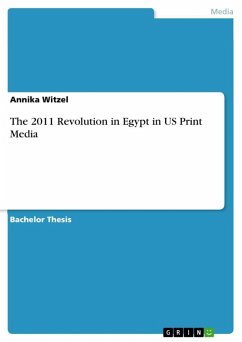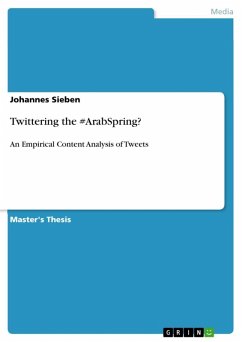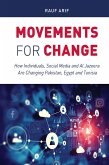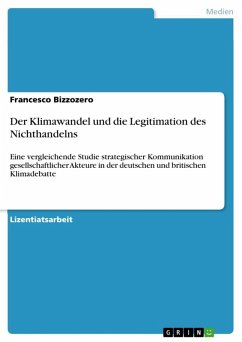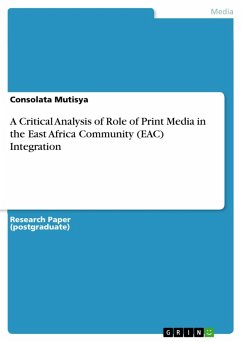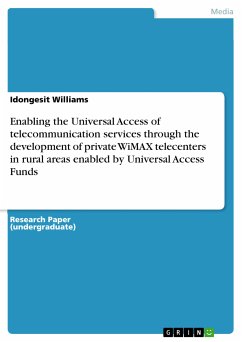Bachelor Thesis from the year 2011 in the subject Communications - Media and Politics, Politic Communications, grade: 2,0, University of Bonn (Anglistik), language: English, abstract: "Lotus Revolution" (Egypt State Information Service1), "18-Day Revolution" (Armbruster 2011), "Nile Revolution" (Murdock February 8, 2011), "Facebook Revolution" (Herrera February 12, 2011) - what happened in Egypt at the beginning of 2011 was given many different titles. Some even call it "the most unexpected development in modern Egyptian history" (Sharp 2011b: 2). After 18 days of protests in Cairo and other cities all over Egypt, the Egyptian people made their President Hosni Mubarak resign. He had been ruling the country for almost 30 years and his people wanted to get rid of him and his regime. That was their goal and that is what they achieved. Of course there were international reactions to the uprisings from all over the world. "Numerous press reports [...] have recounted feelings of popular empowerment and pride inspired by the exploits of Egypt's young protesters" (Sharp 2011b: 5). During the revolution, European leaders urged "Egypt's transition to a new government" at the beginning of February (Murdock February 4), while China blocked the word "Egypt" from a twitter-like micro blogging website, according to Associated Press (quoted by Al Jazeera 2011).Further, when considering recent developments in Libya and Syria, other Middle Eastern countries seem to be inspired by the revolutions in both Tunisia and Egypt. After Mubarak had stood down on February 11, the reactions were even stronger - "Today, we are all Egyptians", stated Norwegian Prime Minister Jens Stoltenberg and David Cameron suggested "We should teach the Egyptian revolution in our schools" (ESIS 2011). However, the United States seem to keep a particularly eager eye on the most populous country of the Middle East. Souad Mekhennet, New York Times and ZDF correspondent, states in an interview with the German medium magazine that "curiously, the American media reacted much faster than the European" when it comes to reporting about the Egyptian revolution (Milz 2011: 20). Moreover, she adds that the large US media outlets' reporting on the topic is "much more continuous and broader" (ibid.), giving a lot more background information on the region. This special attention is most likely due to the fact that for the United States, Egypt is a highly important actor when it comes to foreign policy in the region. [...]
Dieser Download kann aus rechtlichen Gründen nur mit Rechnungsadresse in A, B, BG, CY, CZ, D, DK, EW, E, FIN, F, GR, HR, H, IRL, I, LT, L, LR, M, NL, PL, P, R, S, SLO, SK ausgeliefert werden.

